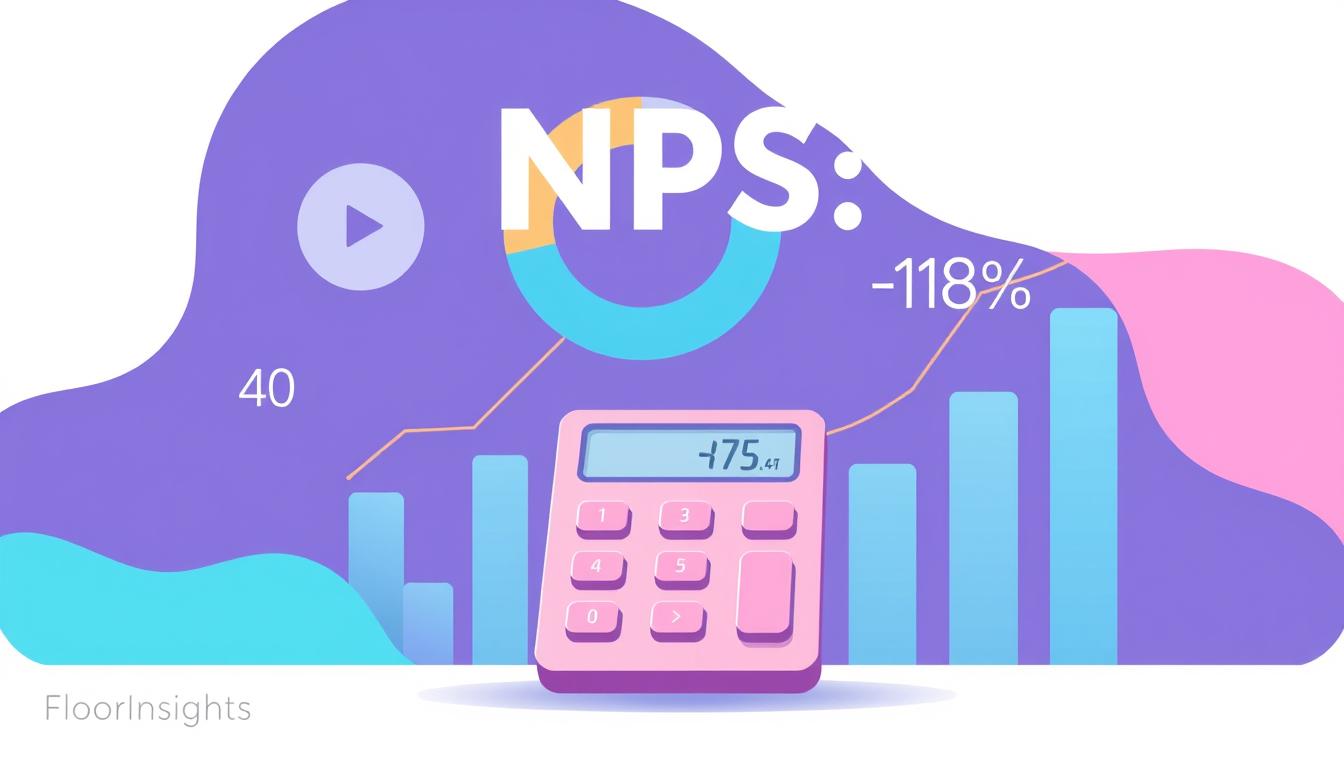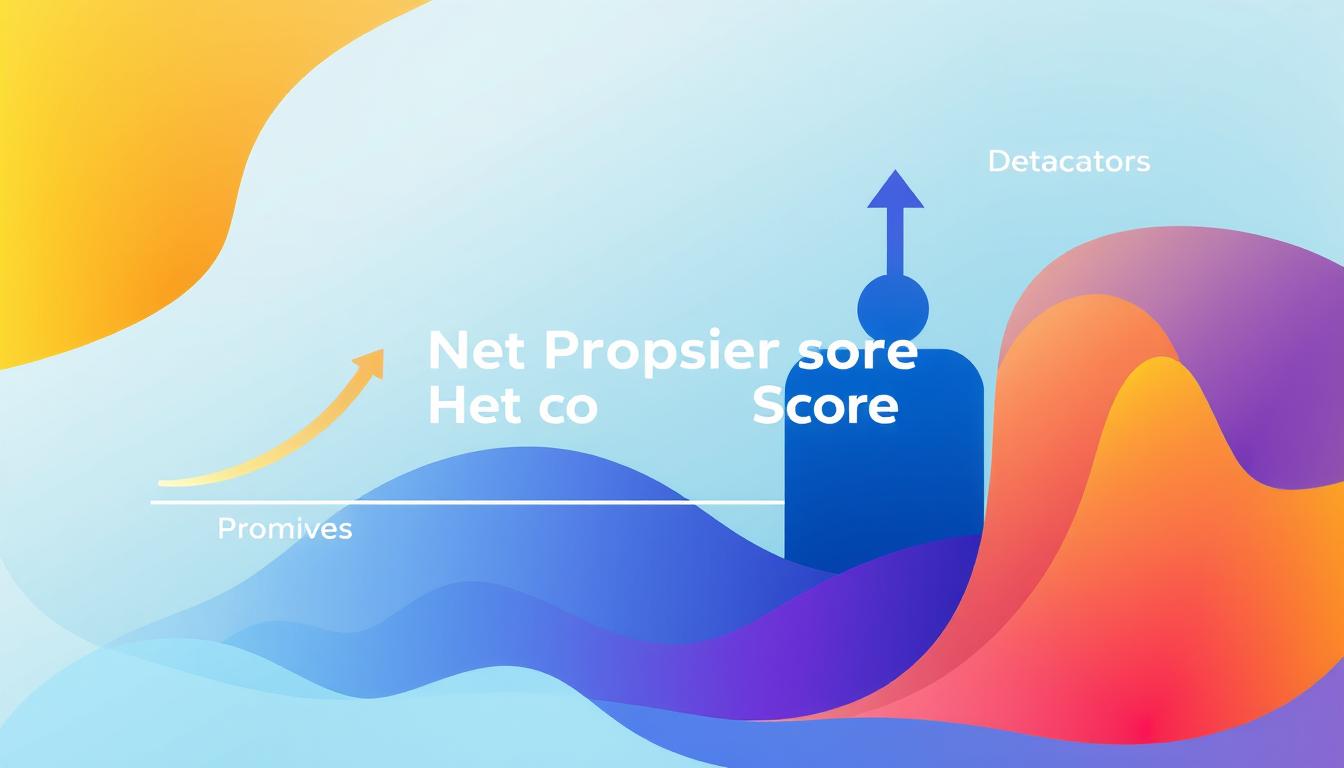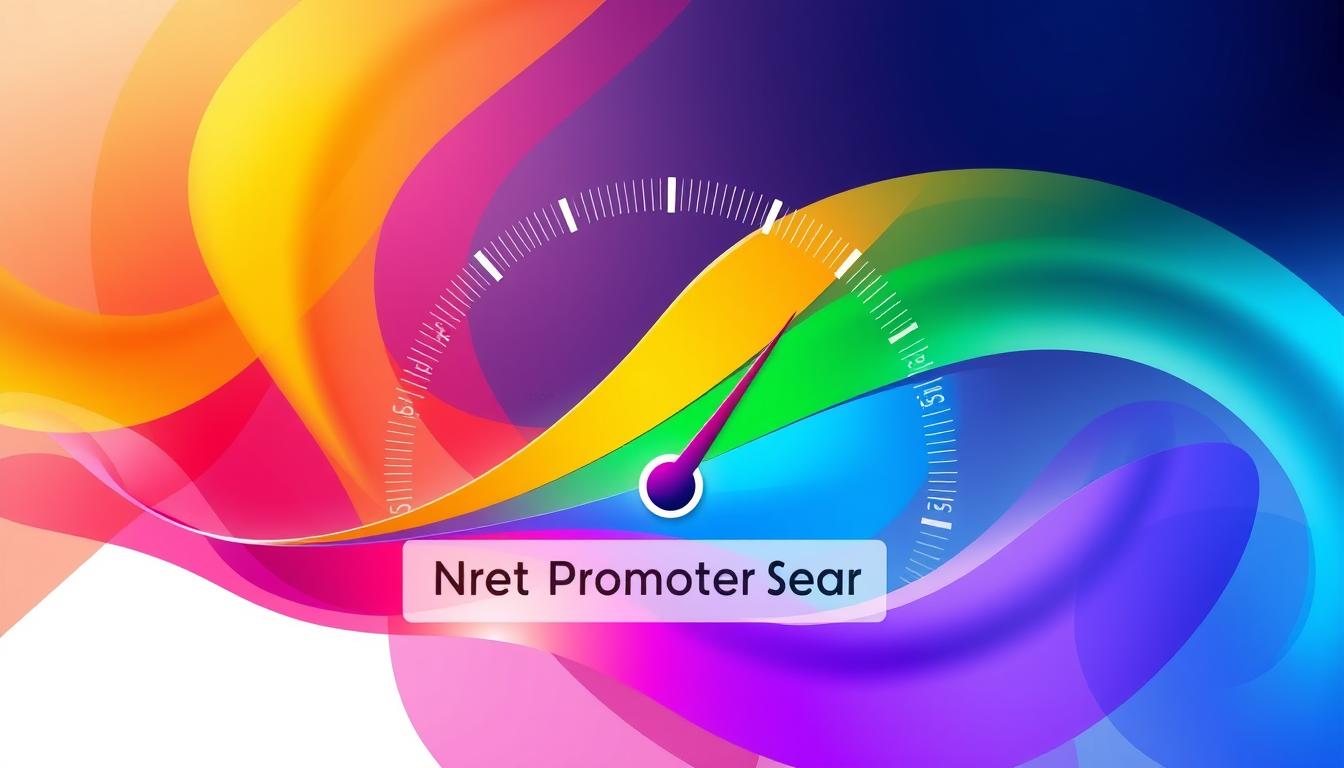In today’s competitive landscape, understanding the importance of the Net Promoter Score (NPS) is crucial for organizations dedicated to enhancing customer satisfaction and fostering loyalty. Customer service reps play a pivotal role in influencing NPS by directly interacting with clients. Their ability to resolve issues, provide informed guidance, and create positive experiences can significantly elevate a company’s reputation and NPS. As we delve into the connection between customer service and NPS, we will explore key insights that can help us improve our service delivery and boost customer loyalty.
Key Takeaways
- The Net Promoter Score is a vital metric for measuring customer loyalty.
- Customer service reps significantly impact NPS through direct interactions.
- Effective issue resolution can enhance customer satisfaction and NPS.
- A positive customer experience contributes to a stronger company reputation.
- Improving service delivery is essential for increasing customer loyalty.
Understanding Net Promoter Score
To enhance our insights into customer loyalty, we delve into the Net Promoter Score. This NPS provides a structured method to gauge how likely our customers are to recommend our products or services to others. The simplicity of an NPS survey, usually comprising a single, straightforward question, enables us to gather essential feedback swiftly and effectively.
What is Net Promoter Score?
The Net Promoter Score serves as an invaluable metric that quantifies customer loyalty. Respondents are typically asked to rate their likelihood of recommending us on a scale from 0 to 10. Based on their responses, we can classify customers into three categories:
- Promoters (scores of 9-10) are enthusiastic customers likely to promote our brand.
- Passives (scores of 7-8) are satisfied but unenthusiastic customers.
- Detractors (scores of 0-6) are unhappy customers who may hinder growth through negative word-of-mouth.
Our NPS score is determined by subtracting the percentage of Detractors from the percentage of Promoters, resulting in a number ranging from -100 to +100. This score provides an insight into how well we are performing in terms of customer loyalty.
The Importance of NPS in Customer Service
Understanding NPS measurement in the context of customer service is crucial for our success. By regularly conducting NPS surveys, we can track customer satisfaction over time and analyze shifts in perception. A notable NPS score signifies not only a strong base of loyal customers but also acts as a predictive indicator of future growth and customer retention.
Utilizing the Net Promoter Score in our customer service initiatives enables us to identify areas for improvement. This feedback loop helps elevate customer experiences, ultimately leading to a more satisfied and loyal customer base. Understanding how our NPS affects retention and growth allows us to make informed decisions that benefit both our customers and the business.
The Impact of Customer Service on NPS
Customer service plays a crucial role in defining how customers perceive our brand. Every interaction provides an opportunity to either enhance or detract from customer perception. Effective and thoughtful engagement leads to stronger relationships, influencing not just current experiences but future behavior as well. By recognizing the significant customer service impact, we can strive to build a positive impression that resonates with customers long after their initial contact.
How Customer Interactions Shape Customer Perception
Customer interactions serve as touchpoints that shape our overall brand image. Positive experiences through friendly support, prompt communication, and personalized assistance cultivate a favorable customer perception. Each time we assist a customer, we contribute to their understanding of our brand’s value. This understanding not only enhances satisfaction but also fosters recommendations to others, driving higher NPS scores.
The Connection Between Satisfaction and Loyalty
Research underscores a strong correlation between customer satisfaction and loyalty. Satisfied customers are more inclined to remain loyal to our brand and share their experiences with others. This loyalty translates into advocacy, further enhancing our reputation and resulting in improved NPS. When customers consistently receive outstanding service, they feel valued, which reinforces their commitment to us. Negative experiences, in contrast, can rapidly undermine loyalty and deter them from recommending our services.
Key Skills of Effective Customer Service Representatives
In the realm of effective customer service, we recognize that the skills of our representatives play a vital role in enhancing customer interactions. Strong customer service skills equip representatives to engage customers, address their needs, and foster lasting relationships. Three primary skills stand out in this regard.
Empathy and Active Listening
Empathy enables customer service representatives to connect with customers on an emotional level. By understanding customer feelings and perspectives, we can create a more personalized service experience. Active listening complements this skill by ensuring that representatives fully grasp the customer’s concerns, allowing for tailored responses that address specific issues.
Problem-Solving Abilities
Representatives equipped with strong problem-solving abilities are invaluable in our customer service teams. These skills empower them to swiftly identify challenges and provide effective solutions. A proactive approach in tackling issues can significantly enhance the customer experience, reaffirming their trust in our brand.
Product Knowledge and Expertise
In-depth product knowledge is essential for effective customer service. When representatives confidently understand our offerings, they can provide accurate information and help customers make informed decisions. This expertise not only boosts customer satisfaction but also contributes positively to the Net Promoter Score, making our customer interactions more impactful.
| Skill | Description | Impact on Customer Experience |
|---|---|---|
| Empathy | Understanding customer feelings and emotions. | Leads to more personalized interactions. |
| Active Listening | Fully engaging with customers’ words and emotions. | Ensures accurate understanding of concerns. |
| Problem Solving | Quickly identifying and resolving customer issues. | Increases customer satisfaction and trust. |
| Product Knowledge | Comprehensive understanding of products and services. | Enables accurate and helpful customer assistance. |
Training Customer Service Reps to Enhance NPS
To effectively elevate the Net Promoter Score (NPS), we must focus on the training customer service reps receive. Investing in continuous training ensures that representatives remain equipped with the latest tools and techniques to serve customers effectively. It builds their confidence and prepares them to tackle various scenarios they may encounter.
Importance of Continuous Training
Continuous training plays a pivotal role in maintaining high service quality. Regular skill-building sessions can significantly enhance the performance of customer service reps, which directly impacts customer satisfaction and loyalty. When we prioritize ongoing development, we foster a workforce that is adaptable and capable of meeting customer needs swiftly, thereby driving NPS improvements.
Creating a Customer-Centric Culture
Establishing a customer-centric culture is essential for reinforcing our commitment to exceptional service. This environment empowers all team members to align with our mission of enhancing customer satisfaction. When training customer service reps includes instilling core values focused on the customer, we cultivate representatives who are passionate about providing outstanding experiences. This cultural shift not only boosts morale but also leads to lasting customer relationships and a stronger NPS.

Utilizing Net Promoter Score Measurement Tools
Choosing the right NPS survey platform is essential for gathering insights that can enhance customer service strategies. A solid understanding of different options helps ensure we find a solution that meets our specific needs. When evaluating potential NPS survey platforms, we should focus on factors such as user-friendliness, advanced analytics capabilities, and the ability to seamlessly integrate with existing systems.
Choosing the Right NPS Survey Platform
We need a comprehensive analysis of various NPS measurement tools available in the market. Identifying features that allow efficient data collection and reporting should be prioritized. Flexibility in customization can amplify our understanding of customer sentiments. A well-chosen NPS survey platform helps establish a straightforward feedback loop that enables customers to express their opinions.
Integrating Net Promoter Score Software into Workflows
Once we finalize a suitable NPS survey platform, integrating net promoter score software into our daily operations enhances our responsiveness to customer feedback. This integration simplifies the process of capturing insights, making it easier to implement improvements that directly address customer concerns. Such practices strengthen our service delivery and validate the voice of the customer across various channels.
Strategies for Customer Service Reps to Boost NPS
Effective customer service representatives play a crucial role in enhancing our Net Promoter Score (NPS). By adopting strategies that promote proactive communication and personalized customer interactions, we can create a lasting positive impact on customer loyalty and satisfaction.
Proactive Communication Techniques
Proactive communication involves reaching out to customers before they express concerns or ask questions. Techniques that demonstrate this approach include:
- Following up on unresolved issues to ensure customer satisfaction.
- Sending reminders for appointments or service renewals.
- Providing updates on product changes or service improvements.
These methods not only show customers that we value their business, but they also help us to boost NPS by addressing potential concerns before they escalate.
Personalizing Customer Interactions
Personalization enhances customer experiences, making them feel valued and understood. We can achieve this by:
- Using customers’ names during conversations.
- Remembering previous interactions and preferences.
- Tailoring solutions and recommendations based on individual needs.
These personalized customer interactions build stronger relationships, encouraging customers to become ambassadors for our brand. By integrating these strategies, we significantly boost NPS and foster loyalty among our customers.
Measuring the Success of Customer Service Initiatives
Measuring success in our customer service initiatives requires a robust analysis of NPS survey results. We must delve into the data, looking for trends and insights that reveal the effectiveness of our customer service strategies. Understanding these results empowers us to track performance and make informed decisions moving forward.
Analyzing NPS Survey Results
A thorough examination of NPS survey results provides invaluable information about customer satisfaction. We can break down the data into segments such as demographics and service interactions, allowing us to identify which areas of customer service need improvement. Key metrics to focus on include:
- Promoters: Highly satisfied customers who advocate for our brand.
- Passives: Satisfied but unenthusiastic customers, vulnerable to competitors.
- Detractors: Unhappy customers whose feedback highlights specific areas for development.
| Category | Number of Responses | Percentage |
|---|---|---|
| Promoters | 150 | 60% |
| Passives | 80 | 32% |
| Detractors | 20 | 8% |
This table captures the essence of our customer sentiment, allowing us to strategize effectively. Maintaining a consistent review of NPS survey results helps us align our actions with customer expectations.
Implementing Feedback Loops
Establishing effective feedback loops creates a channel for continuous improvement. By collecting feedback systematically and acting upon it, we demonstrate to our customers that their opinions are valued. Steps to effectively implement feedback loops include:
- Regularly distribute NPS surveys to gather customer feedback.
- Analyze responses and categorize feedback for actionable insights.
- Communicate any changes made based on customer recommendations.
- Encourage ongoing dialogue with customers to understand their current needs.
Utilizing these feedback loops not only enhances the customer experience but can significantly contribute to higher NPS scores. Our commitment to adapt and improve shows customers that we listen and care about their experiences.
Case Studies: Successful NPS Improvements
Examining various case studies offers us valuable insights into how leading companies have achieved successful NPS improvements through targeted strategies. Organizations that actively seek and prioritize customer feedback often notice substantial boosts in their NPS. By analyzing these instances, we can better understand the crucial role of implementing effective feedback mechanisms and how they can enhance our customer service approaches.
Examples from Leading Companies
For instance, companies like Apple and Zappos have demonstrated remarkable success in elevating their NPS by fostering strong customer relationships and acting upon feedback. Apple’s commitment to providing exceptional support and consistently evolving its products based on user input exemplifies proactive customer engagement. Similarly, Zappos has built its reputation on customer service excellence, where listening to customer feedback has paved the way for innovative solutions and improved customer experiences.
Lessons Learned from Customer Feedback
From these case studies, we discern that effectively addressing customer needs is pivotal for nurturing loyalty and driving NPS improvements. Emphasizing the importance of feedback allows us to cultivate a customer-centric culture that can adapt and thrive. By embracing these lessons learned, we can identify and implement best practices that not only respond to customer needs but also foster ongoing relationships, ultimately leading to a more favorable NPS.
FAQ
What is the Net Promoter Score (NPS) and how is it calculated?
The Net Promoter Score (NPS) is a metric used to gauge customer loyalty by asking customers how likely they are to recommend a company’s products or services to others on a scale of 0 to 10. NPS is calculated by subtracting the percentage of detractors (those who score 0-6) from the percentage of promoters (those who score 9-10). This score provides valuable insights into customer satisfaction and loyalty.
Why is NPS important for customer service?
NPS is crucial for customer service as it not only reflects customer satisfaction but also indicates potential customer retention and future growth. Regularly measuring NPS through surveys allows us to track performance and understand how our customer service initiatives impact overall customer experience and loyalty.
How can we effectively improve our NPS scores?
We can improve our NPS scores by focusing on key customer service skills such as empathy, active listening, and problem-solving. Training our customer service representatives continuously and creating a customer-centric culture enables us to provide better experiences, leading to increased customer satisfaction and loyalty.
What tools should we use to measure NPS?
To effectively measure NPS, we recommend utilizing a reliable NPS survey platform along with net promoter score software that offers analytics capabilities and easy integration. This helps us gather customer feedback efficiently and allows us to act on insights in real-time.
What strategies can our customer service reps use to boost NPS?
Customer service representatives can boost NPS by implementing proactive communication techniques, such as following up on issues and personalizing customer interactions. Using customers’ names and recalling past conversations can enhance their experience and strengthen their loyalty.
How can we analyze the success of our customer service initiatives?
We can analyze the success of our customer service initiatives by examining NPS survey results to identify patterns and trends over time. Implementing feedback loops is also essential; collecting and acting upon customer feedback demonstrates our commitment to improvement, thereby enhancing customer experiences and NPS.
What role does employee training play in enhancing NPS?
Continuous training is vital in enhancing NPS as it equips our customer service representatives with the necessary skills and knowledge to provide outstanding service. By fostering a culture of learning, we ensure that our reps are prepared to meet customer needs effectively and build stronger relationships.






